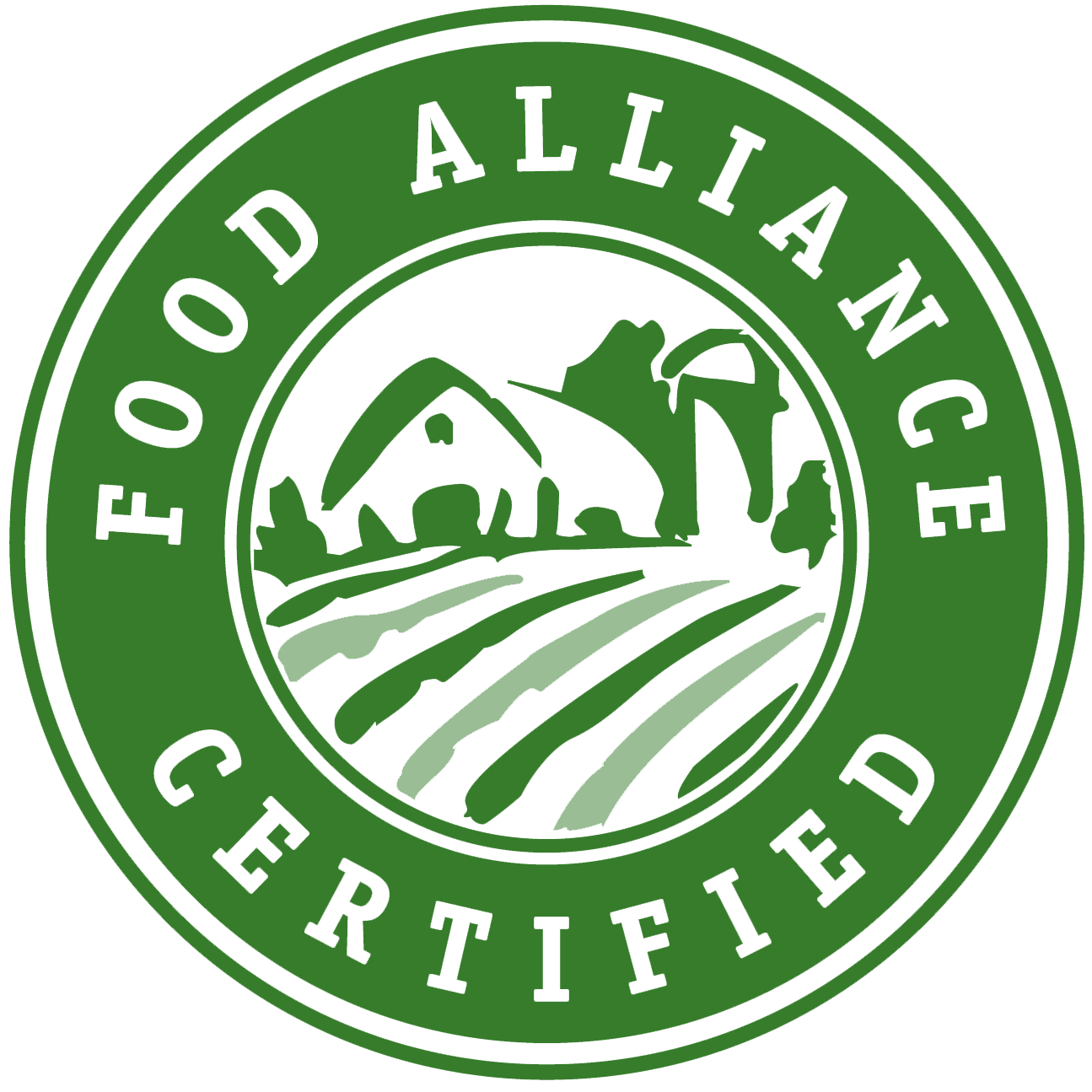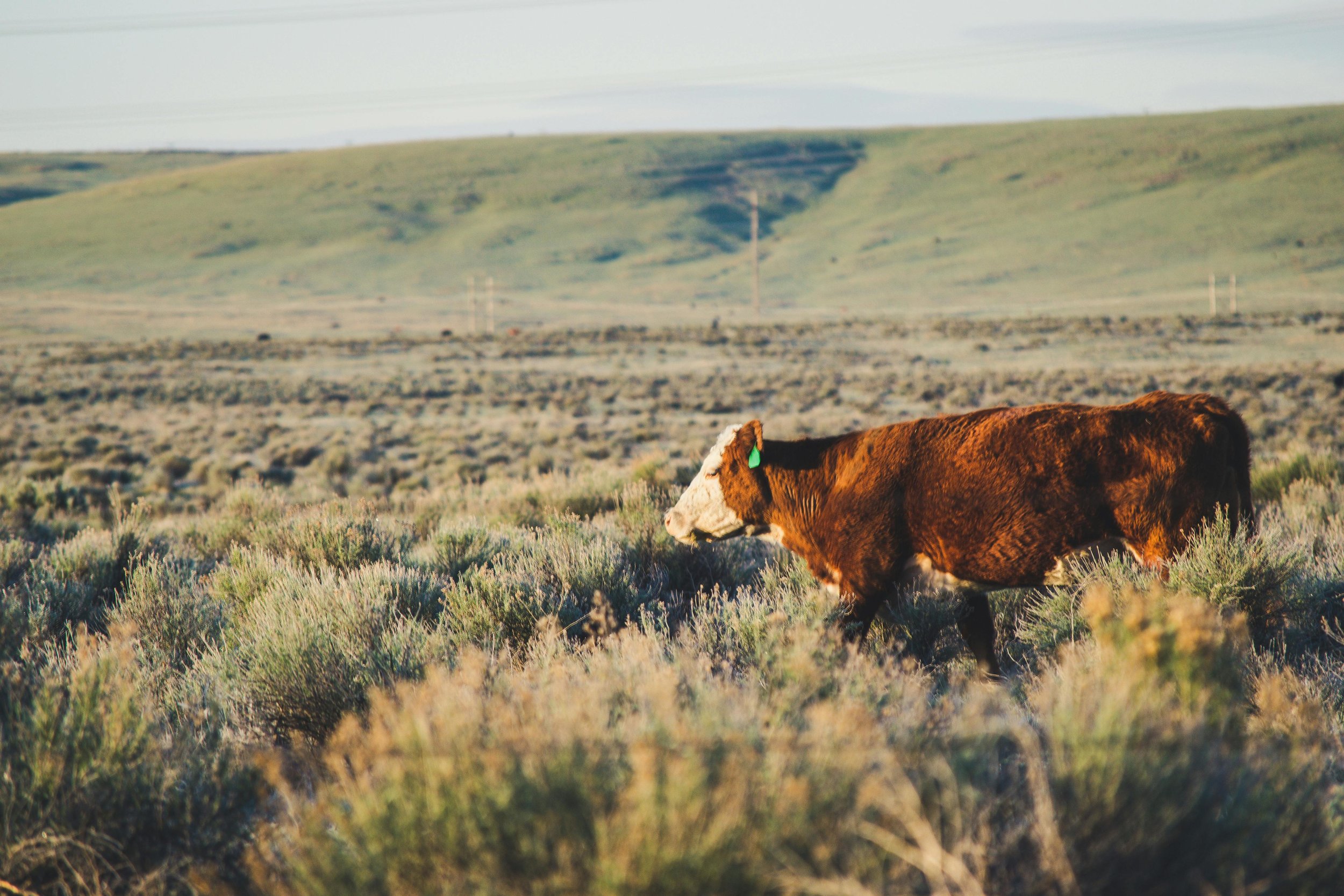The Path to More Sustainable Beef
Beef cattle production can have significant environmental impacts when not properly managed and conversion of land for beef production is a leading cause of deforestation and loss of biodiversity. Without careful management, overgrazing eats away the ground cover that protects soil, reduces soil organic matter, and leads to erosion, depleting the soil and adding sediment to rivers and streams. Production of grain for cattle feed consumes water, fertilizers, pesticides, and fossil fuels. The cattle industry is also a source of greenhouse gas emissions, and waste that can contaminate surface water and groundwater.
The good news is that a growing number of ranchers are implementing and advocating for more responsible production methods to mitigate these impacts and create more resilience long term. They recognize that preserving natural resources and addressing climate change are critical to their business. They also know that ensuring the health and welfare of the animals they raise is necessary to meet increasing demand from retailers, chefs, and consumers seeking “sustainable” beef from well-managed operations.
Defining Sustainability
Unfortunately, there is currently no widely accepted, credible definition for “sustainable” beef production. Instead, buyers face a patchwork quilt of label claims – including “natural,” “organic,” “humane,” “grassfed,” and, more recently, “regenerative” – which only address pieces of the problem.
The issue is compounded with claims that are not well regulated, which can be weak or misleading.
This puts the burden of vetting claims on buyers and complicates the marketing challenge for farmers and ranchers that are truly committed to improving the sustainability of their operations, practicing responsible pasture and range management, and raising healthy animals to produce the best quality beef.
Food Alliance Offers the Solution
In 2012, the National Resources Defense Council (NRDC) began researching standards for sustainable beef production. They consulted with stakeholders including ranchers, commercial beef buyers, the research community, and advocacy organizations, and conducted and evaluation of the existing ranch and farm certification programs.
In the process, Food Alliance was singled out as the most comprehensive, credible standard for sustainable beef production in the US.
Food Alliance’s standards for sustainable beef production address issues including:
Safe and fair working conditions
Healthy and humane care for livestock
Protection and enhancement of wildlife habitat and biodiversity
Grazing management
Nutrient management
Conservation of soil and water
No hazardous pesticides (WHO schedule 1a and 1b)
No non-therapeutic antibiotics or growth promotants
No animal by-products in feed
No cloned or genetically modified (GMO) animals
Assessment and planning for continual improvement of management practices
Visit Food Alliance’s Livestock Certification page to learn more about the standard and apply for certification.
Introducing the Grasslands Alliance
Food Alliance has also collaborated with representatives of NRDC and the Rainforest Alliance to introduce a new Grasslands Alliance standard for beef production in North America, which highlights strategies to reduce climate impacts, build soil health and ecosystem resilience, and move to a regenerative model for agriculture.
The Grasslands Alliance standard has been field tested on selected ranches and is open for comment by issue and industry stakeholders.
Visit our Grasslands Alliance page to learn more.



